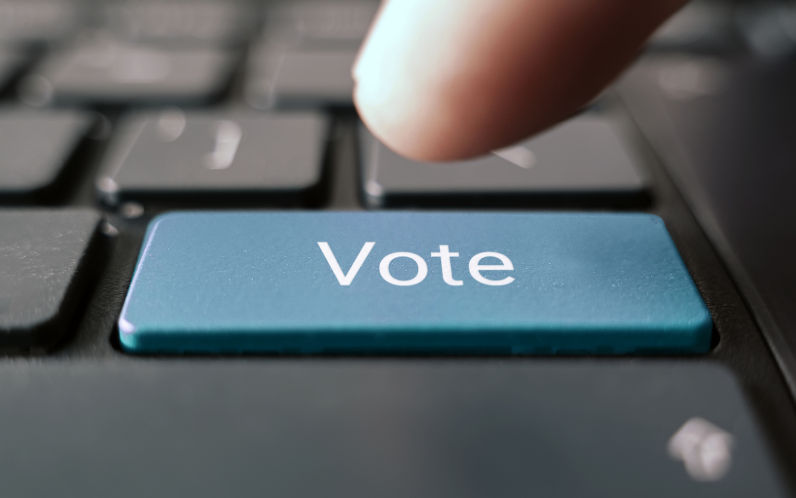As we are now a few short months away from the next federal election, politicians and their advisers are desperate to identify segments of the electorate that could decide a closely run race. Among other things, party strategists seek to appeal to the historical links between religion and voting preferences.
Paul Williams, Political scientist at Griffith University, stated in 2022 that Catholics historically voted Labor while Presbyterians were “90 to 95 per cent Liberal Party”. In his view, “There used to be a very strong link between voting and church, but that has really withered away.” If that is the case, what about the voting patterns of the non-religious?
Gallup polling in the US has long found a strong correlation between religious inclination and support of the Republican party. In 2023, the overall population was evenly split between Democrat and Republican, while the non-religious split 63% to 26% in favour of Democrats, with the balance unknown. Commentators pointed to the significance of religiosity, along with cost of living, as decisive factors in Trump’s success last November.
As we enter out own pre-election phase, what do we know about the association between religion and voting preference in Australia?
The Non-Religious Vote in 2022
The Australian Election Study is a highly respected comprehensive survey conducted by Australian National University after every federal election. Responses to the survey are weighted to reflect national demographics, giving a nationally representative picture. The survey after the 2022 election reveals some interesting messages.
One question asked respondents to place themselves on a scale of 1 to 10, ranging from ‘Left’ to ‘Right’ on the political spectrum. The stand-out message was that over 85% of those responding with ‘No Religion’ were either ‘Centre’ or ‘Left’, split evenly between those two points on the range.
Two other questions asked how people had cast their votes for the House of Representatives. One asked for first preferences while the other (directed to those who chose a minor party for the first question) requested their preference allocation between the two major parties. The full sample showed a 53% to 41% split between the ALP and the Coalition, with the balance of 6% either not voting or choosing not to answer.
Using these two-party preferred responses in conjunction with a question on religion, it’s possible to analyse voter choice, by religion.
Catholic and Orthodox religions split evenly between the ALP and the Coalition, while Anglican and Other Christian religions were 56% in favour of the Coalition. Non-Christians were 55% for the ALP, just a shade above the national ALP vote, but respondents identifying as not religious were 68% in favour of the ALP.
So, it seems Anglicans and Other Christians still favour the Coalition, but most significant is the preference of the non-religious for the ALP.
The size of the prize
According to the 2021 census, 38.9% (almost 10 million Australians) are non-religious. This represents an increase of almost a third in the five years since 2016, and is, by some margin, the single largest category of response to the religion question.
But even this record high almost certainly understates the true figure. Several flaws in the way the census collects information about religion justify this view.
One reason for this is the wording of the question, “What is the person’s religion?”. Even people with the most basic understanding of questionnaire design will recognise the inherent assumption that the respondent has a religion. This leads to a form of bias in the results known as acquiescence bias – where the respondent cooperates with the intent of the question.
But there are other reasons why the census misrepresents reality.
The religion question is slotted into a part of the census that seeks to take a snapshot of Australia’s cultural diversity. Of course, religion is certainly part of culture. But unlike country of birth, year of migration, ancestry, and language used at home, which are fixed or change slowly, association with religion is much more dynamic.
People’s relationship with religion changes. For me, it took many years to acknowledge that religion was a part of my past but is not part of my present identity. In previous censuses I declared an association with a religion because of family history, upbringing, and school attended.
Other reasons for changing beliefs may include experience of tertiary education (where science-based evidence often conflicts with religious teachings), defection from high-control religions, media exposure of the failings of religious institutions, fanaticism, or conflicts defined by religious differences.
Another form of bias which is likely to contribute to the understatement of the non-religious is known as ‘question order bias’. The religion question is the final question of the cultural diversity section, so the respondent is pre-disposed to thinking about static features of their cultural background. For some, this encourages people to choose the religion of their upbringing.
These reasons create a cohort of ‘cultural Catholics’ and ‘cultural Christians’ and their non-Christian equivalents – people who now have no connection with religion – and this produces a significant undercount of the currently non-religious.
The census is intended to provide a demographic snapshot of Australia at a point in time, not a blurred mix of the current and the past. This is important because results from the census provide the gold-standard evidence base for policies and decisions at all levels of government.
Similarly, it is relied upon by the public service, a wide range of non-government organisations, and social researchers. So, it needs to be accurate.
People used to talk about the “Catholic vote”, the “Protestant vote”, and the “Jewish vote”. But the “Non-religious vote” can no longer be ignored. Political parties need to re-think how they engage non-religious voters. If politicians want to connect with this large and growing secular constituency, policy positions should be reviewed, and narratives tweaked.

Michael Dove
Michael Dove is a geographer, a demographer, and convenor of the Secularism Australia Forum and the ‘Census21 – Not Religious?’ campaign.
Michael Dove is Convenor of the Secularism Australia Forum

